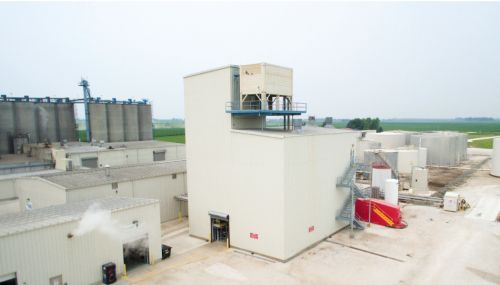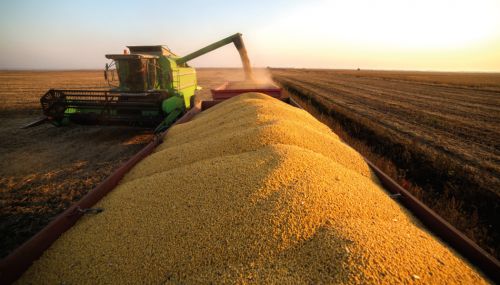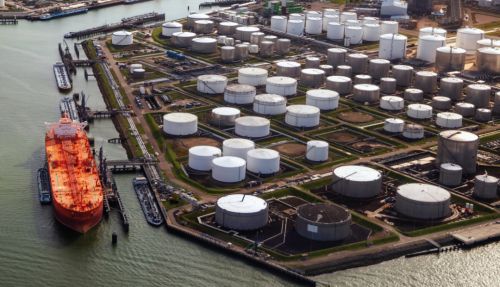Alliance Autogas partners with dealers to convert vehicles and fuel fleets
(Date: September 1, 2012)
Propane dealers throughout North America can tap into an emerging market by selling Autogas to fleets that operate in their areas.
Alliance Autogas, a nationwide consortium of retailers, promotes the use of propane as vehicle fuel by supporting vehicle conversions and the deployment of fueling equipment at fleet locations. Dealers who join forces with Alliance are granted exclusive Alliance Autogas distribution rights in their local areas.
Blossman Gas founded Alliance in 2009 to promote gasoline-to-propane conversions through a network of vehicle conversion centers, technology providers and fuel providers. Any propane dealer who is willing to comply with Alliance’s customer service requirements is eligible to join and begin fueling local fleets.
Stuart Weidie, president and CEO of Blossman, said the Alliance seeks to take advantage of shifting market forces to build out an Autogas infrastructure. Blossman itself has been marketing Autogas since the 1970s, but the market dwindled in the 1990s due to a lack of advanced vehicle technology. When the vehicle technology improved in recent years, Blossman launched Alliance and began recruiting partners.
“I think it’s great for the consumer,” said Weidie. “The emission reductions are impactful, and propane is primarily a domestic-based fuel.” Ninety-eight percent of the propane sold in the U.S. last year was produced domestically, and the U.S. was a net exporter of propane. “We need to use that fuel here instead of exporting it,” he added.
Alliance is working with 120 fleets now and Weidie is optimistic that many more will follow. “It’s right here, right now, and it makes great sense. We’re saving fleet customers $1.65 to $1.75 a gallon.” Miles per gallon with propane are about 90 percent of gasoline’s mpg. “Even with a 10 percent efficiency difference, the fuel cost savings are significant,” he said.
Building a Network
Alliance provides after-market vehicle conversion through a network of conversion centers that share the same technology. Alliance members pay for the installation of fueling equipment at fleet sites so that fleet owners can get started without incurring too much upfront cost.
A typical vehicle conversion costs $5,800, and the fueling equipment costs about $30,000 to $35,000, according to Weidie. Alliance is aiming to bring conversion costs down to $4,200 to $4,500 eventually. If a vehicle is driving 30,000 miles a year, the payback on the conversion cost is between six and 24 months, depending on the vehicle and how much it is driven, according to Weidie.
Alliance now has 37 fueling partners and 21 conversion center partners. Fueling partners in the Northeast include Proulx Oil & Propane, Paraco Gas, Eastern Propane, Maine Energy, Nantucket Energy and others. Conversion partners are typically equipment up-fitters who have the technological knowledge to do vehicle modifications, such as Force 911, which specializes in law enforcement vehicles and Fontaine Modification, which converts large, heavy-duty trucks.
Autogas adoption in the U.S. pales in comparison to other countries such as Australia, Poland, South Korea, Italy and Turkey, according to Weidie. There are 18 million vehicles running on Autogas worldwide, but only 20,000 of those are in the U.S.
“We often say propane is the ‘stealth transportation fuel,” said Weidie, noting that there is widespread awareness of alternatives such as electronic vehicles, ethanol and even compressed natural gas (CNG), but very limited awareness of Autogas. “Our day in the sun is coming, “ he said, because Alliance conversion centers are expected to perform 5,000 to 10,000 vehicle conversions annually in the near future, increasing to 5,000 to 10,000 a month in about 2017. Alliance recently partnered with two national vehicle conversion centers that each have 12 locations.
One Fleet At a Time
Alliance uses a business model that promotes a successful transition to Autogas, according to Weidie. “Our philosophy is that we’re going after fleets with onsite refueling needs and steering away from the ‘Build it and they will come’ approach where you build stations and then find vehicles to use them.”
Alliance partners benefit from this approach because they don’t have to invest in refueling infrastructure without an assurance of fuel sales. “It’s a cost-effective approach and one that makes sense in the current state of the market.” Weidie said he anticipates growing demand for public refueling from fleets that are too small to install refueling equipment and from the public.
There are five keys to success for an alternative vehicle fuel, according to Weidie: great vehicle technology; professional installation of conversion kits; refueling infrastructure; reliable fuel supply; and keeping the vehicles on the road with certified service that is readily available.
Fleet operators have the choice of a dedicated propane engine or a bi-fuel adaptation. “Seventy-five to 80 percent like the after-market bi-fuel option,” he said. Alliance conversion centers install the Prins Vapor Sequential Injection (VSI) system, which starts the car on gasoline and immediately converts to Autogas. Converted vehicle can switch from one fuel to the other while the car is driving. Used widely in Europe and Asia, the system comes with a 3-year, 36,000-mile warranty and includes ASME-approved fuel tanks with multiple mounting options. The Prins VSI connects to the vehicle’s on-board computer and has a dedicated injection rail that connects to the cylinders.
Autogas fuel tanks range in size from 22 to 46 gallons. “We don’t have the range limitations of other alternative fuels. You might be able to go 350 to 450 miles a day, which is adequate for the day for many customers,” Weidie said. “That’s one of the things that makes Autogas attractive. We have a range profile very similar to gasoline or diesel.”
Autogas is finding its market with fleets of vehicles that travel extensively in a localized area, according to Weidie. “It’s popular with law enforcement, taxi cabs and transit fleets,” said Weidie. “We’re also seeing wider adoption with distribution companies such as auto parts stores and those who handle package delivery.”
Autogas also offers easy start-up for fleets. “If you have all the permits and signoffs from the fire marshal, the refueling infrastructure is a three-day installation. Refueling is quick too, with a tank fill time comparable to gasoline, according to Weidie. “You don’t have the long wait time that you have with CNG.”
Support for Partners
Alliance strives to keep Autogas work manageable for its partners. “We have common specifications on the equipment and common marketing agreements that we’re all using. We have consolidation of all our marketing, so partners don’t have to go reinvent that. When you become a partner, you have access to all of that.”
The group demands high customer service standards from its partners. “We only have one shot at this. We need to do a good job for our customers and be seen as reliable with fuel delivery, durable fueling equipment and keeping vehicles serviced and on the road,” Weidie said.
Alliance supplies vehicle diagnostic software and trains mechanics to service Autogas vehicles, whether they work for the fleet owner or for a local repair shop. “If companies have their own technicians, part of the conversion process is training them to handle most of the basic troubleshooting and repair work so they are certified to service to vehicles. You can’t expect people to drive 200 miles to get the car serviced,” he said.
Alliance wants its partners to be committed to Autogas and to their customers. “You need a very strong commitment to the customer service aspect,” said Weidie. “If a refueling pump goes down at midnight and the customer fuels their vehicles overnight, someone has to get out there and fix that pump.”
Alliance also helps with data management by providing technology for electronic registers so that they can communicate information on propane fueling to a fleet operator’s back-end computer system.
Alliance members can also grow their businesses serving the expanding market for propane lawnmowers. Dealers can serve landscaping companies and even provide cylinder exchange for homeowners’ mowers.
Alliance Autogas is not trying to replace CNG. Weidie said he hopes the U.S. diversifies its vehicle types effectively, so that there is a good mix of Autogas, CNG and electric vehicles. “We don’t think we’re the total solution,” he said. “We’re part of the solution.”





